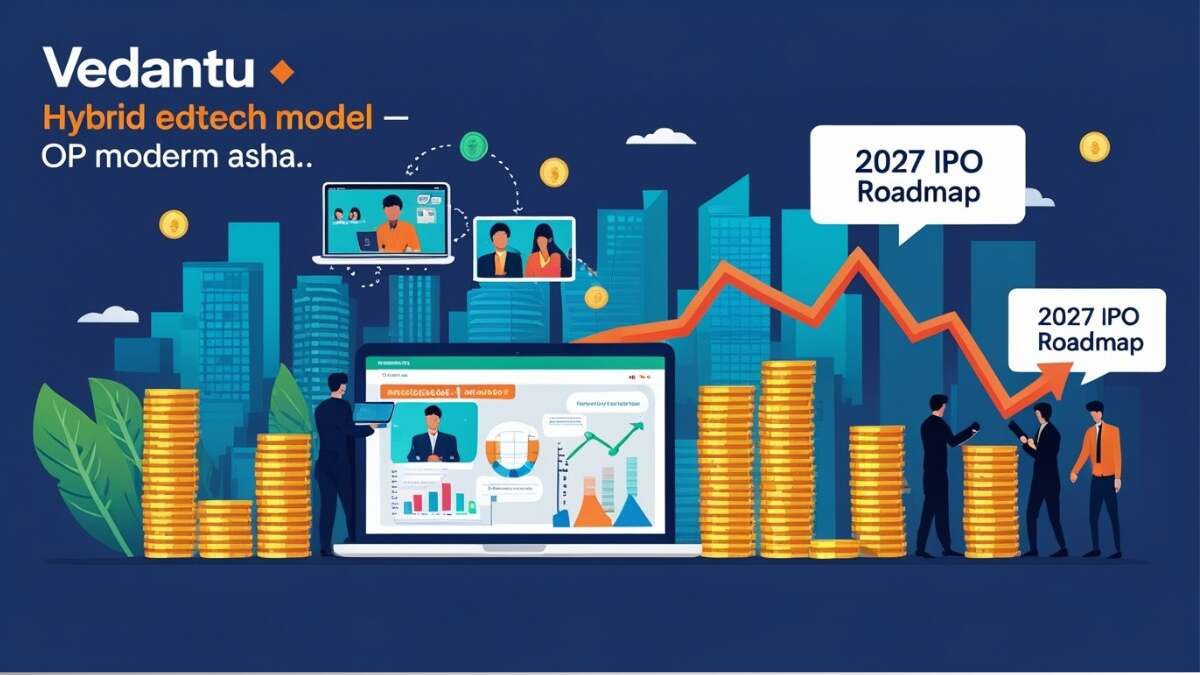As part of a wider continuing fundraising effort, the business is getting ready for an external tranche that will contain a “substantial secondary component” to provide exits for certain early investors, including Chinese backers Legend Capital and TAL Education.
Vedantu, an edtech business located in Bengaluru, said on September 26 that it had secured $11 million (about Rs 98 crore) in new funding from its current backers, which included ABC World Asia, Accel India, and Omidyar Network.
The business is planning for an external tranche that would contain a “major secondary component” to give exits for certain early investors, including Chinese backers like TAL Education and Legend Capital. The convertible deal is a part of a bigger ongoing campaign.
cushion prior to the first public offering
Vamsi Krishna, co-founder and CEO of Vedantu, said that the financing was intended to provide flexibility to the firm as it approaches its listing goals. Since we currently have a healthy cash flow, the internal round will not truly be utilized for expansion capital. As we get closer to our IPO, it serves more as a buffer,” he told Moneycontrol.
“We need to clean up the cap table before our first public offering (IPO), which is anticipated in 2027. We are considering bringing in a few investors to help some of our early and Chinese investors sell their shares. Discussions are still going on.
History of financing and valuation
According to the agreements negotiated with outside investors, the value will be lower than Vedantu’s peak unicorn status.
Tracxn reports that the firm has raised $326 million in 18 stock rounds to far, and its current valuation is $912 million.
In September 2021, ABC World Asia and other investors, including Coatue, Tiger Global, GGV Capital, and WestBridge, contributed $100 million to its most recent significant fundraising round. The business has now taken out a couple smaller loan rounds.
Vedantu is one of a few high-conviction businesses with IPO visibility that Omidyar Network, which has left India, still supports.
Milestone of profitability
The financing coincides with Vedantu’s first period of consistent profitability. With over Rs 6 crore in free cash flow and Rs 90 crore in revenues, up 67% year over year, it achieved cash flow positive status in Q4 FY25.
According to Krishna, the company’s collections in April and June of this year reached their seasonal top of Rs 110 crore. It anticipates closing FY26 with around Rs 370 crore, a 30% increase.
While cash burn decreased by 30% to Rs 70 crore for FY25, receipts increased by 55% at Rs 284 crore. It has already been six months since Vedantu turned a profit. Online channels provide for 60% of the company’s income, with offline sources providing the remaining 40%.
In FY25, Vedantu’s online K–12 business expanded by 33%; in the most recent two quarters, growth accelerated to 70%.
Acquisitions, sector recovery, and hybrid wagers
Vedantu is currently enrolling franchise partners and has increased its physical presence to over 100 hybrid centers. In the K–12 sector, the business is also looking for acquisitions, which Krishna characterized as “smart transactions to boost income.”
Additionally, the hike coincides with a lack of edtech financing due to governance concerns at Byju’s and Unacademy, namely in the K–12 sector. However, things seem to be changing.
In addition to companies like Eruditus and Bhanzu raising money, PhysicWallah has filed for an IPO.
Another indication of improved mood, according to Krishna, was Vedantu’s fundraising. Investor interest is gradually returning, and this round is evidence of that. This is one of the rare capital injections that a major edtech company has disclosed in recent years, which suggests that something is occurring, at least in the K–12 industry, he added.
What comes next?
With 1,200 instructors, 2 lakh paying students, and 10 million monthly users, Vedantu intends to grow in K–10 and exam preparation while branching out into fresh sectors. The business still views its hybrid model, which now accounts for 40% of sales, as a crucial growth tool.

